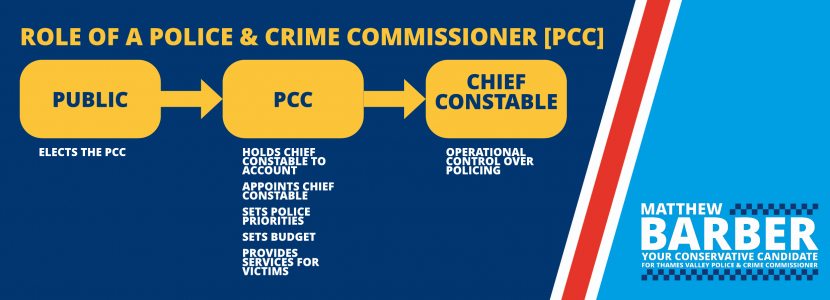
A good Police and Crime Commissioner understands the policing issues facing their local area and police force. They will be a strong voice and advocate for residents, victims and stakeholders. Effective PCCs put law-abiding citizens at the heart of policing priorities, are focused on cutting crime and delivering an efficient police service for all of their area.
About Police and Crime Commissioners
Police and Crime Commissioners (PCCs) are elected by the public to ensure the policing needs of your community are met as effectively as possible, and to oversee how crime is tackled in your area. The next PCC Election for Thames Valley is on Thursday 6 May 2021.
Police and Crime Commissioners are elected to hold your police force to account for delivering the kind of policing you want to see. Their aim is to cut crime and to ensure your police force is effective. PCCs bring a public voice to policing and they do this by:
-
engaging with the public and victims of crime to help set police and crime plans;
-
ensuring the police force budget is spent where it matters most; and
-
appointing, working with and where necessary, dismissing the Chief Constable.
Work with others
PCCs also work with your council and other organisations to promote and enable joined up working on community safety and criminal justice.
The PCC does not ‘run’ the police force. Chief constables continue to be responsible for the day to day operations of the police, but they are accountable to the public via the police and crime commissioner.
PCCs ensure an effective policing contribution alongside other partners to national arrangements to protect the public from other cross-boundary threats.
Represent the entire community
PCCs are required to swear an oath of impartiality when they are elected to office. The oath is designed so that PCCs can set out publicly their commitment to tackling their new role with integrity. It reflects the commitment police officers make to serve every member of the public impartially and makes clear that they are there to serve the people, not a political party or any one section of their electorate.

